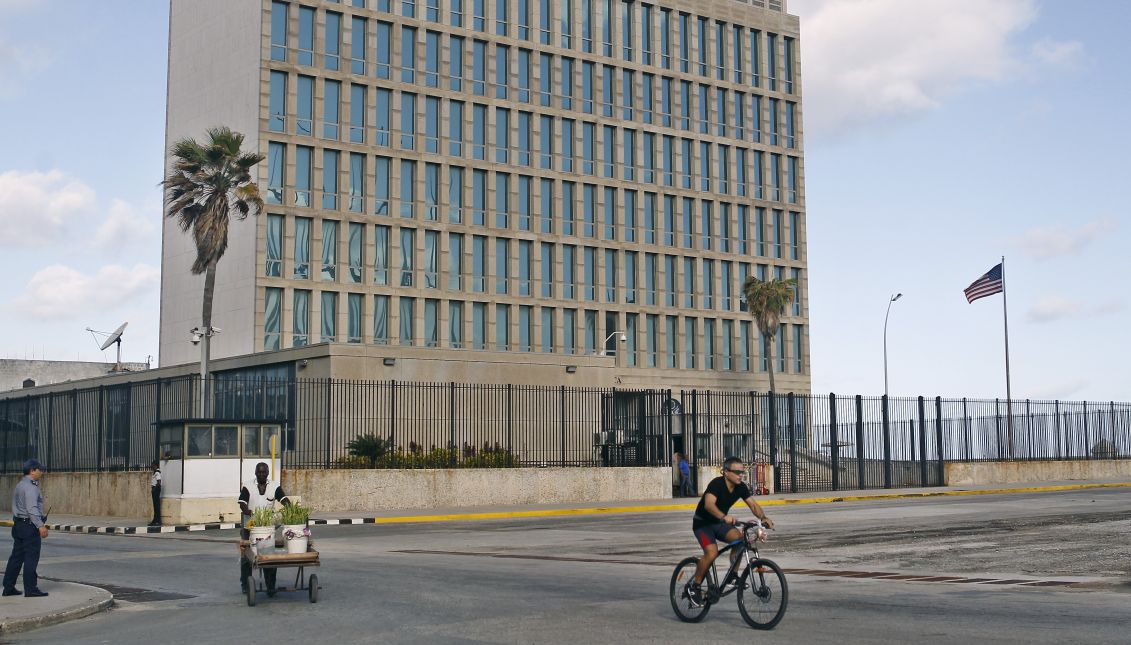
Trump to announce restrictions on Cuba policy
Among the changes being considered are prohibiting US firms to negotiate with entities linked to Cuba's Revolutionary Armed Forces (FAR) and the possibility of…
President Donald Trump is planning to travel to Miami in the near future to announce changes in US policy toward Cuba that could "significantly" toughen conditions for bilateral trade and Americans' visits to the communist island, three officials close to the process confirmed to EFE on Tuesday.
Upon his inauguration in January, Trump ordered his team to conduct a comprehensive review of the more open policy toward Cuba launched in December 2014 by his predecessor, Barack Obama.
That review is nearly finished and Trump's team expects soon to present to the president a "series of options" for him to decide upon, an official with the White House National Security Council, who requested anonymity, told EFE on Tuesday.
According to two other officials close to the process, the White House has already decided that Trump will give a speech "in the style of a campaign rally" in Miami in the coming weeks to announce the changes, something that - at this stage - is being planned for mid-June.
The decision has been made for Trump to go to Miami and give a speech, but the details are still being discussed, an official familiar with the internal White House activities, also requesting anonymity, told EFE.
Among the changes being considered are prohibiting US firms to negotiate with entities linked to Cuba's Revolutionary Armed Forces (FAR) and the possibility of imposing more restrictions on Americans' travel to the island.
In addition, it is probable that Trump will nullify the presidential order issued by Obama in 2016 with the aim of establishing his revised Cuba policy, which served as a guide whereby the responsibility of each government agency in the new relationship with Havana would be clearly delineated.
Although Trump is not planning to break diplomatic relations or close the US Embassy in Cuba, the changes being considered are far from being merely symbolic, the officials told EFE.
This is a "significant move backwards" in Obama's policy of rapprochement, said one of the sources, who favors lifting the US trade embargo on Cuba.
RELATED CONTENT
Prohibiting all transactions linked to the Cuban army might seem innocuous, but in practice what it will do is "basically suffocate all trade with Cuba," the official predicted.
For the Treasury Department, it will be difficult to completely certify that a state-run company in Cuba does not have any links with the FAR, and that will create "uncertainty" for US firms, who "will not want to run the risk" of being sanctioned, the official said.
Trump could also instruct the State Department to "focus more on human rights," said John Kavulich, who heads the US-Cuba Trade and Economic Council, a group of US firms interested in doing business with the island.
Although US tourism in Cuba is not permitted, Obama relaxed travel restrictions for Americans by allowing them to "self-register" as participants on educational, cultural or other legal visits to the island.
Kavulich told EFE that the aim of Trump and his team is, at a minimum, to strengthen immigration controls so that Americans returning from Cuba will have to provide proof that they traveled to the island for the listed legitimate reasons and not for tourism.
Two Republican lawmakers of Cuban origin have been key players in the White House discussions: Sen. Marco Rubio and Rep. Mario Diaz-Balart, according to the three officials.
Both received "guarantees from Trump himself" that he would toughen US policy toward Cuba if they cooperated with him in several areas, including approving the people he nominated for his Cabinet and passing the healthcare law pushed by the White House, one of the sources said.









LEAVE A COMMENT: